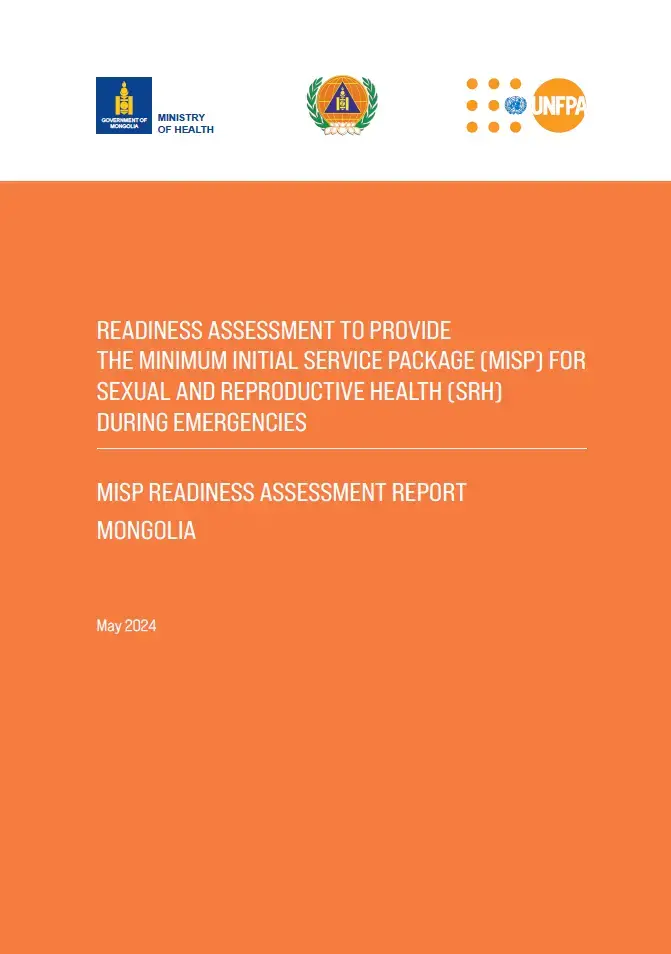This Minimum Initial Service Package (MISP) Readiness Assessment (MRA) was carried out under the leadership of the Ministry of Health (MoH), in collaboration with the National Emergency Management Agency (NEMA), UNFPA Mongolia Country Office and the involvement of key partners, during March–April 2024. The primary objective of the MRA was to identify capacities and gaps in the healthcare system to implement the MISP for sexual and reproductive health (SRH) during emergencies and to develop an action plan for SRH preparedness and response.
Using a standardized MRA methodology, the assessment team examined national disaster management and SRH policies, plans, and the coordination environment for SRH disaster management, and assessed the health system’s ability and readiness to provide MISP-SRH during an emergency, at both national and subnational levels. The assessment found that the revised 2017 Disaster Protection Law has established the legal basis for the overall disaster preparedness and response framework. The law positively supports timely access to health services for affected populations and explicitly supports the development and implementation of disaster management plans at national, subnational and organizational levels, with state financing mechanisms for disaster preparedness and response measures.
Despite an overall enabling environment in terms of health preparedness and response, however, the provision of MISP-SRH is not explicitly integrated into national and subnational disaster management plans and financing mechanisms. The health sector has several strengths in health preparedness and response, including its disaster management and coordination structure, state financing of health care for affected populations, the existence of a broad range of health-care facilities, qualified medical personnel and other actors in urban and semi-urban areas. Despite its existing strengths and capacities within the health system, numerous gaps and needs were identified to ensure readiness for implementing the MISP-SRH during emergencies.
The MoH has developed a national emergency SRH care package that includes all elements of the MISP in line with its five objectives. However, while health-care providers are mandated to implement the emergency package, this remains a challenge as the package has not yet been adequately operationalized. The MISP-SRH is not included in existing national SRH plans and key operational procedures, and there is no adequately estimated emergency reserve for the implementation of the SRH care package at national, subnational and facility levels. Health-care providers are not trained on the MISP-SRH and there is a lack of health facilities and qualified medical personnel at the lowest levels particularly in rural areas.


